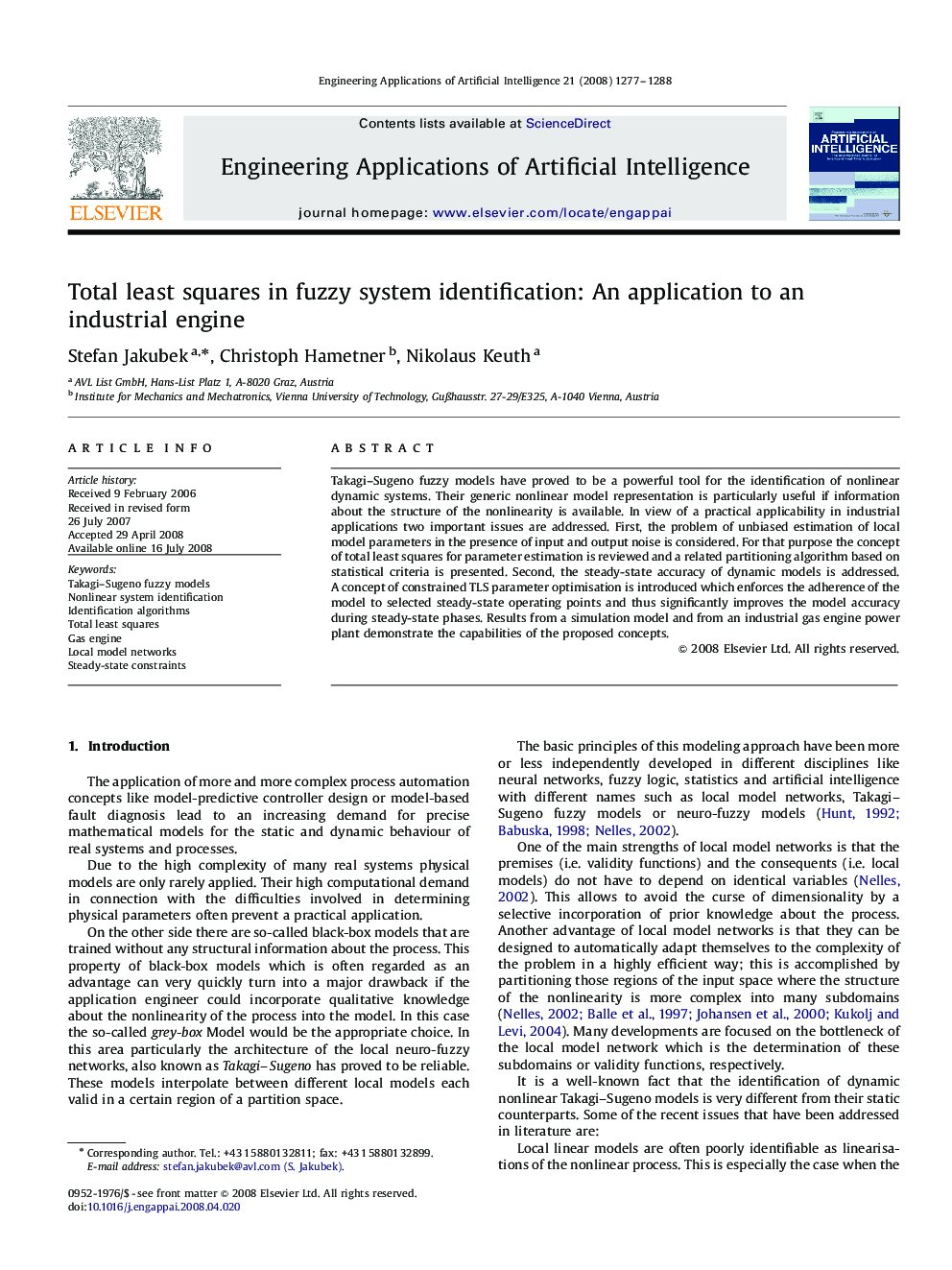| Article ID | Journal | Published Year | Pages | File Type |
|---|---|---|---|---|
| 381260 | Engineering Applications of Artificial Intelligence | 2008 | 12 Pages |
Takagi–Sugeno fuzzy models have proved to be a powerful tool for the identification of nonlinear dynamic systems. Their generic nonlinear model representation is particularly useful if information about the structure of the nonlinearity is available. In view of a practical applicability in industrial applications two important issues are addressed. First, the problem of unbiased estimation of local model parameters in the presence of input and output noise is considered. For that purpose the concept of total least squares for parameter estimation is reviewed and a related partitioning algorithm based on statistical criteria is presented. Second, the steady-state accuracy of dynamic models is addressed. A concept of constrained TLS parameter optimisation is introduced which enforces the adherence of the model to selected steady-state operating points and thus significantly improves the model accuracy during steady-state phases. Results from a simulation model and from an industrial gas engine power plant demonstrate the capabilities of the proposed concepts.
